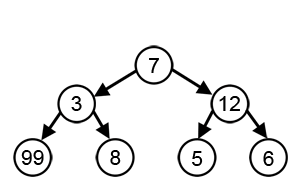ABOUT Vector index
vector - modify data
at : access specified element with bounds checking
operator[] : access specified element
vector <int> v;
for(int i=1;i<=10;i++){
v.push_back(i);
}
v.at(4) = -1;
v[4] = 77;
-
atandoperator[]both return a reference to the indexed element -
you’d better take the habit to use
at, less idiomatic, but bound-checking is priceless -
A much better way is to use
at(...). This will automatically check for out of bounds behaviour and break throwing an std::out_of_range.
v.at(10) = 9;
- We will get:
terminate called after throwing an instance of ‘std::out_of_range’ what(): vector::_M_range_check: __n (which is 10) >= this->size() (which is 4)
vector - erase : erase data
vector <int> v;
for(int i=1;i<=10;i++){
v.push_back(i);
}
int count = 0;
for(vector<int>::iterator it = v.begin(); it != v.end(); it++){
if(count == 5){ // in case of the index is 5 --> data will be erased
it = v.erase(it);
break;
}else{
count++;
}
}
vector - insert : insert data
vector <int> v;
for(int i=1;i<=10;i++){
v.push_back(i);
}
int count = 0;
for(std::vector<int>::iterator it = v.begin(); it != v.end(); it++){
if(count == 5){// in case of the index is 5 --> data will be inserted
v.insert(it,6);
break;
}else{
count++;
}
}

